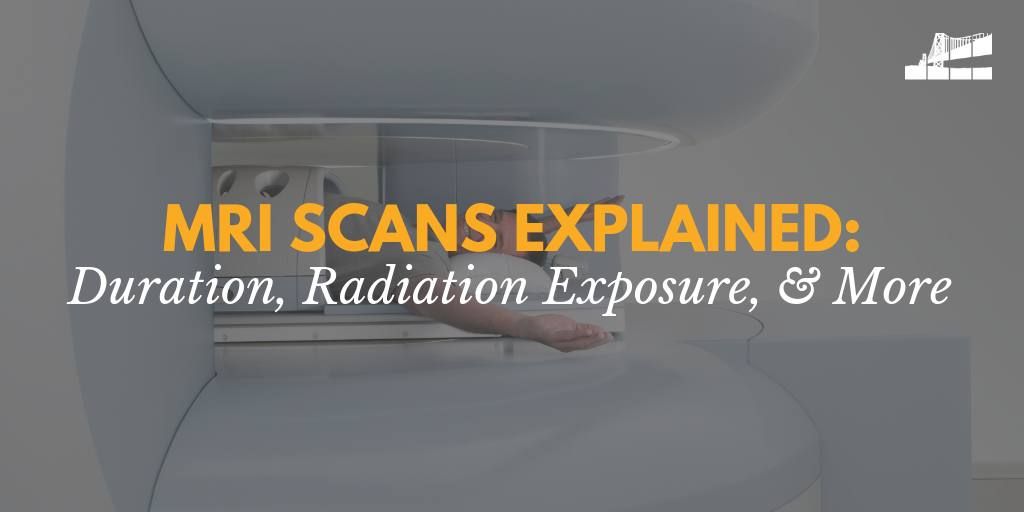When it comes to imaging procedures like these (as well as CT scans, ultrasounds, etc.) many patients feel a certain amount of anxiety over this radiation exposure. But did you know that you’re actually exposed to regular doses of radiation in your daily life? Let’s take a look at some of these sources and put things into perspective.
MRI Scans Explained: Duration, Radiation Exposure, & More
MRI’s are a noninvasive way for your doctor to examine your organs, tissues and skeletal system. They produce high-resolution images of the inside of the body that help diagnose a variety of problems. Below, we’ll answer all of your MRI questions, including “what is an MRI”, “how long does an MRI take”, “how much does an MRI cost”, and more.
What is an MRI?
Magnetic resonance imaging—or MRI—is an imaging technique that uses a large magnet and radio waves to create detailed images of the body. The scan uses a strong magnetic field and radio waves to generate images of parts of the body that can't be seen as well with other imaging modalities including X-rays, CT scans or ultrasound. The MRI machine can also be used to produce 3-D images that may be viewed from many different angles.
How does an MRI work?
Electromagnetic energy is released when exposing a patient to radio waves in a strong magnetic field, which is then measured and analyzed by a computer producing two and three-dimensional images. The MRI scanner creates a strong magnetic field through the body, and then it sends radio waves into the body and assesses the response sent back from the different tissues.
How long does an MRI take?
Depending on the type of scan you are having, and the location of the area being scanned, your MRI can take anywhere from 15 minutes to an hour to complete.
What happens during an MRI?
An MRI procedure is totally painless. You must remove all metal from your body, including keys, hair pins, fingernail clippers, zippers, watches, and remove any piercings, before lying down on a movable table that slides into the opening of the tube-shaped MRI machine. Since the MRI uses magnets, it can be very dangerous for the patient or technologist if metal enters the room so you may be asked to change into a gown or approved clothing.
A radiologic technologist runs the machine and monitors you from another room, where they can speak to you through a microphone. If you are claustrophobic, you may be offered headphones to listen to music, goggles to view images or shows, and you can request low dose sedative medicine from your physician to help you calm down.
Will I be exposed to radiation during my MRI?
There is no MRI scan radiation because MRI uses magnets rather than ionizing radiation like X-rays or CT scans.
How much does an MRI cost?
The cost of your MRI will differ based on your location and the type of scan performed, as well as whether or not you have insurance; however, generally, MRIs are more expensive than x-rays or CT scans. The average cost of an MRI without insurance in the United States is around $2,500. Please ask your MRI facility for self pay rates if you are uninsured.
If you are looking to book an MRI in San Francisco with board-certified radiologists at a leading imaging center, find your closest BICRAD location and make an appointment today!

